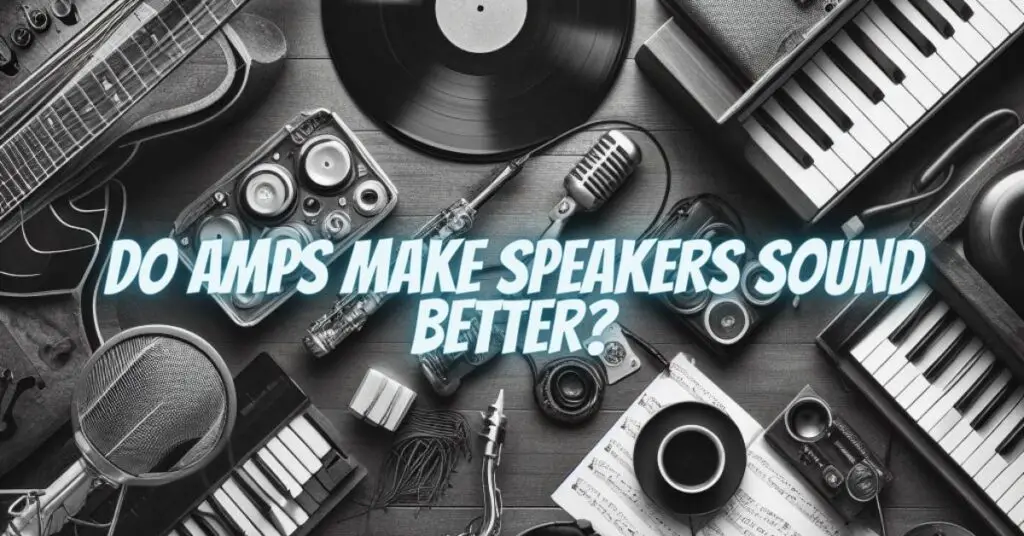Amps can make speakers sound better. In fact, they are one of the most important pieces of equipment in any audio system. Amps take the weak electrical signal from your source device and amplify it so that it can drive your speakers or headphones.
But amps do more than just make your music louder. They also affect the tone and timbre of the sound. This is because amps have different frequency responses and distortion characteristics.
Frequency response
The frequency response of an amp is the range of frequencies that it can reproduce accurately. Most amps have a frequency response that extends from 20 Hz to 20 kHz. This is the range of human hearing, so it is important for amps to be able to reproduce this entire range of frequencies accurately.
However, not all amps have the same frequency response. Some amps have a more linear frequency response, while others have a more pronounced bass or treble response. This can affect the overall tone of the sound.
For example, an amp with a boosted bass response will produce a warmer and more bassy sound. An amp with a boosted treble response will produce a brighter and more detailed sound.
Distortion
All amps produce some distortion. Distortion is the introduction of new frequencies into the signal that are not present in the original signal. Distortion can be caused by a number of factors, including the type of amp, the operating voltage, and the output level.
Some types of distortion, such as harmonic distortion, are considered to be more euphonic and can actually improve the sound quality. Other types of distortion, such as crossover distortion, are considered to be more unpleasant and can degrade the sound quality.
For example, a tube amp will typically produce more harmonic distortion than a solid-state amp. This can give the tube amp a warmer and more musical sound.
How amps make speakers sound better
Amps can make speakers sound better in a number of ways. Here are a few examples:
- Provide enough power: Speakers need a certain amount of power to produce sound at a given volume. If the amp does not provide enough power, the speakers will distort and sound bad.
- Control the speakers: Amps also control the movement of the speaker cones. This helps to ensure that the speakers produce accurate and distortion-free sound.
- Improve the frequency response: Amps can improve the frequency response of speakers by compensating for the speakers’ natural frequency response. This can result in a more balanced and natural sound.
- Reduce distortion: Amps can reduce distortion in speakers by providing a clean and stable signal. This can result in a more accurate and detailed sound.
Choosing an amp for your speakers
When choosing an amp for your speakers, it is important to consider the following factors:
- Power: The amp should provide enough power to drive the speakers to the desired volume without distortion.
- Impedance: The amp and speakers should have the same impedance rating.
- Frequency response: The amp should have a frequency response that is at least as wide as the frequency response of the speakers.
- Distortion: The amp should have a low distortion rating.
It is also important to consider the type of sound you are looking for. If you want a warm and musical sound, then you may want a tube amp. If you want a bright and detailed sound, then you may want a solid-state amp.
Amps are an essential part of any audio system. They not only make your music louder, but they also affect the tone and timbre of the sound. When choosing an amp for your speakers, it is important to consider the power, impedance, frequency response, distortion, and type of sound you are looking for.


